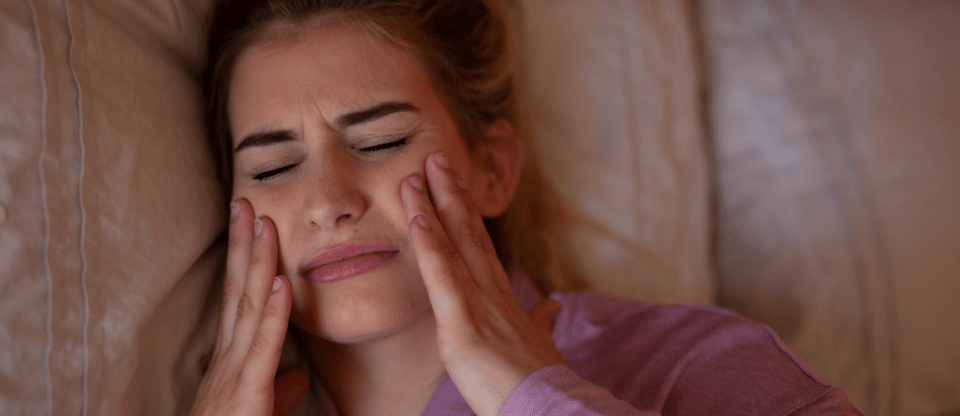How To Stop Grinding Teeth
Teeth grinding – also known as bruxism – is when you rub your teeth together or clench your jaw often without even realizing you are doing it.
Teeth grinding can cause pain in your face, headaches, earaches, and even over time, cause worn-down teeth which can lead to sensitivity and broken teeth, especially when it happens at night.
What causes teeth grinding?
The cause of bruxism is unique to each patient and not always clear, whether physical, psychological, or genetic factors are at play.
Daytime clenching is usually triggered by stress, anxiety, tension, or even concentration. Night-time grinding is sometimes related to hyperactivity, or acid reflux, and can appear as a side effect of certain medications intended to treat depression.
Treatments for teeth grinding
Mouth Guard or Mouth Splint
You can get a special mouthguard or mouth splint which will reduce the sensation of clenching or grinding. It will even out the pressure placed on your jaw and act as a barrier between your upper and lower teeth. This will help to reduce the pain and prevent the tooth from wearing away as well as protecting it against further damage.
Stress and anxiety treatment
If the cause of your teeth grinding is psychological then Cognitive Behavioral Therapy (CBT) may help.
If stress plays a large factor, then it is important to relax and wind down, especially before bed. Ideas to aid this include reading, yoga, meditation, or having a bath.
Medicine
While medicine is not usually used to treat teeth grinding, a non-steroid anti-inflammatory such as ibuprofen can help relieve pain and swelling around your jaw. Your doctor may even suggest taking a muscle relaxant before going to sleep to relieve symptoms. Always consult your local GP before taking any medication.
Dental corrections
You should have regular dental examinations so that any issues resulting from teeth grinding can be addressed. Dental problems such as cracked, crooked, or missing teeth can all be treated by reconstructive dental treatments. Your dentist may need to reshape the chewing surfaces of your teeth or use crowns to repair the damage.
Other tips to help you stop teeth grinding include:
- Avoid or cut back on foods and drinks that contain caffeine, such as fizzy drinks, chocolate, and coffee.
- Avoid alcohol where possible. Grinding tends to intensify after alcohol consumption.
- Do not chew on pencils or pens or anything that is not food.
- Train yourself not to clench or grind your teeth. If you notice that you clench or grind during the day, aim to position the tip of your tongue between your teeth as this will train your jaw muscles to relax.
- At night try holding a warm washcloth against your cheek in front of your earlobe to relax your jaw muscles.
If you are concerned about teeth grinding or any other dental-related issues, it is important to speak to your registered dentist.
Related blog: How to get rid of a toothache


